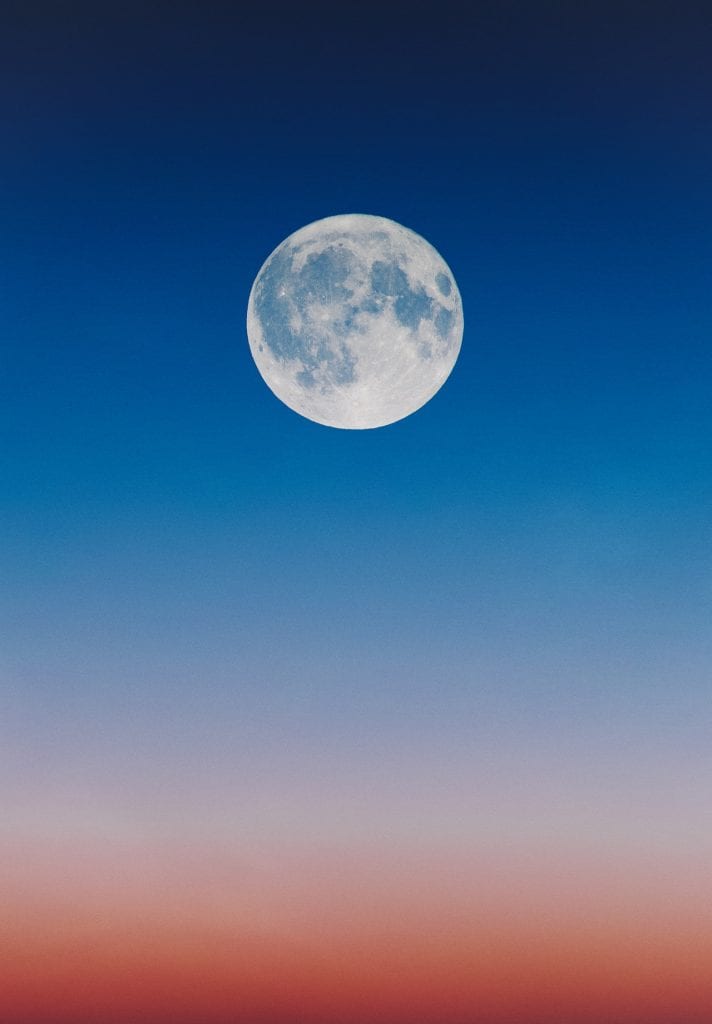Whether or not the Full Moon affects the human body is a topic widely debated. If you take a holistic view of health and wellbeing, then you will most likely be aware that, everything is connected. To think that one species can exist in isolation is perhaps somewhat of a misconception. The fact that we fail to notice the affects of the Moon, the Sun, water, plants and the air we breathe on a daily basis, is a reflection of today’s hurried modern world. Throughout history there has been reference to how the Full Moon affects the human body, be it a change in mood or altered sleep patterns. So, how does the Full Moon affect us? Let’s take a look…

The Full Moon
The Full Moon occurs when the Moon is furthest away from the Sun on the opposite side of the Earth. The Sun’s gravitational pull on the Moon has an influence on the Earth’s Ionosphere. In brief, the Ionosphere is a layer of positively charges particles roughly 75 miles above the surface of the Earth. At the time of the Full Moon, gravity pushes the Ionosphere towards the surface of the Earth. When this occurs, positive ions from the Ionosphere mix with negative ions from the Earth’s atmosphere. Resulting in the air that we breathe being more positively charged than usual.
Everything Is Connected
At the time of the Full Moon, when the positive ions from the Ionosphere mix with negative ions from the Earth’s atmosphere and the air we breathe is more positively charged, this affects the body. Our blood and arteries are normally negatively charged, a double negative charge results in an easy flow across the membranes within the body. The blood is negatively charged resulting in poorer oxygenation, so our blood is thicker and we are considered to be in our most toxic state.
Holistic Health
When looking at holistic health, conditions both inside and outside of the body are taken into consideration. The Moon is just one of the factors taken into consideration when looking at a treatment plan for an individual. As an example, the position of the Moon can be taken into consideration when recommending a time to detox. Just as the Moon waxes and wanes, so does the body, going through cycles of accumulation and elimination. As the Moon wanes our bodies begin a natural detoxification process, breaking down fat-cells and eliminating the toxins stored within.
Natural Detox
Around this time you might feel more full and experience bloating. The Full Moon is the time to eat light meals and prepare for the elimination process that will follow. If you are considering a detox or juice plan, now is the time to start. Begin your fast on the eve of the Full Moon or a day or two before, plan to break your fast on the day after the Full Moon. Doing a fast at the time of the Full Moon will cleanse your body of toxins and help you to enter elimination phase of the Lunar Cycle with a lighter step. Timing your fast in correlation with the Full Moon will help you to tackle toxins that have been accumulating in your body. Be gentle with yourself. Noticing the lunar phases and adapting our nutritional behaviour accordingly can help support our body’s natural rhythm and enhance our capacity to burn fat and release toxins.
There are a few great books to reference if you are interested in learning more about this subject. Moon Time by Johanna Paunger and Thomas Poppe takes an in-depth look at Lunar phases and the body. You might also enjoy The Healing Energies of Light by Roger Coghill, a book that looks at how light levels profoundly affect the bodies ability to function. Coghill discusses how light plays a critical role in our physical and emotional well-being. Take a look at a Lunar Calendar and start to notice how you feel at various times of the moon cycle…




